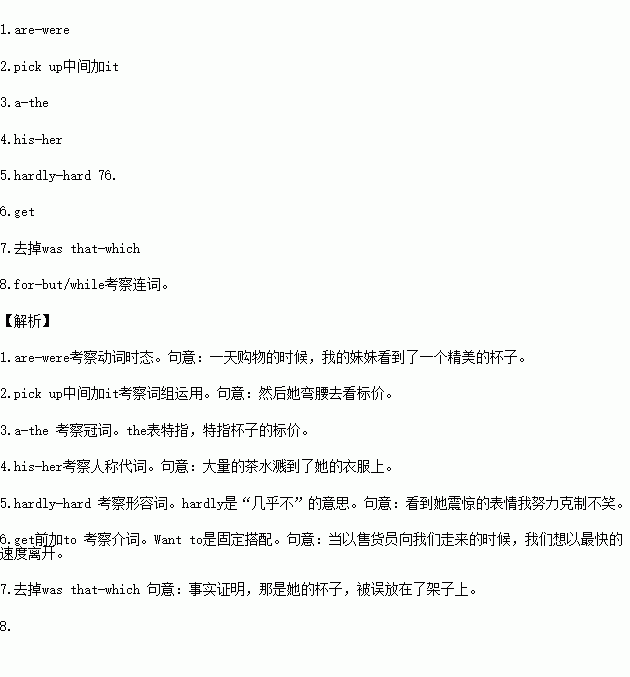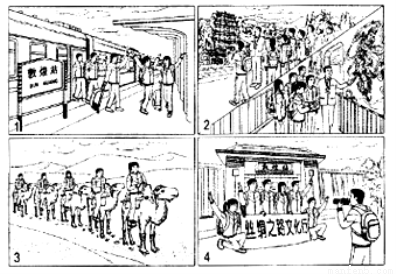题目内容
短文改错
假定英语课上老师要求同桌之间交换修改作文,请你修改你同桌写的以下作文。文中共有10处语言错误,每句中最多有两处。每处错误仅涉及一个单词的增加、删除或修改。
增加:在缺词处加一个漏字符号(∧),并在其下面写出该加的词。
删除:把多余的词用斜线(\)划掉。
修改:在错的词下划一横线,并在该词下面写出修改后的词。
My sister saw a lovely cup when we are shopping the other day. She liked it at once. Then she bent down and picked up to look at a price on it. As she did this, lots of tea splashed on his Tshirt!I had to try hardly not to laugh at her shocking face!My sister wanted get out of the shop as fast as she could when a shop assistant came over to us. It was turned out to be her own cup,that she'd left on the shelf by mistake. The assistant was clearly as embarrassed as my sister,for I just thought it was funny!
Lovely dog aged 5 I’m moving and can’t take him with me. Very good with children. I’d like to give it away to a good home. Tel: 8631966 | Wanted Welcome the Hilo’s Store Take any old pair of shoes to us between now and 30 Sep. And you will pay not more than ten dollars for any new pair of shoes. Your old shoes will be given to the poor people. |
A women’s dress size 12 silk $150. Also three dresses for girls between 5 and 9 years old, $120 the three. More information call Laura at 5998326. |
1.You needn’t pay if you want to get __________.
A. a pair of shoes B. a women’s dress
C. a girl’s dress D. a lovely dog
2.If Mrs. Evans is interested in the dresses, so she may call _____________.
A. 8631966 B. 5998326 C. 2455919 D. 2456836
3.If you give an old pair of shoes to Hilo’s Store, you can get a new pair of shoes with ________.
A. over 10 dollars
B. less than 10 dollars
C. only 10 dollars
D. 10 dollars or less than 10 dollars
4.Whom will the old shoes be given to __________.
A. rich people B. poor people
C. beggars D. hard-working people


